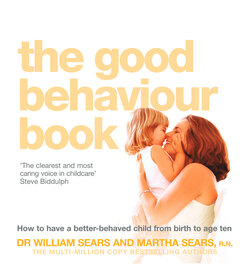Читать книгу The Good Behaviour Book - Марта Сирс - Страница 35
connected kids are less accident-prone
ОглавлениеSecurely attached children do better in unfamiliar situations because they have a better understanding of their own capabilities. In parent parlance, they are less likely to “do dumb things”! The organizing effect of attachment parenting helps to curb their impulses. Even children with impulsive temperaments tend to get into trouble less if they are securely attached to a primary caregiver. A child who operates from internal organization and a feeling of rightness is more likely to consider the wisdom of a feat before rushing in foolishly. This may be because connected kids are not internally angry. Anger adds danger to impulsivity, causing a child to override what little sense he has and plunge headfirst into trouble. In essence, connected kids are more careful. Also, connected parents are naturally more vigilant and are more likely to keep on the heels of their toddler when visiting homes that are not childproofed.
Attachment parenting promotes independence. If you are wondering whether attachment parenting will make your child clingy and dependent, don’t worry. Attachment parenting actually encourages the right balance between dependence and independence. Because the connected child trusts his parents to help him feel safe, he is more likely to feel secure exploring the environment. In fact, studies have shown that toddlers who had a secure attachment to the mother tended to play more independently and adapt more easily to new play situations than less attached toddlers. (To read more about how attachment fosters independence, see here).
Between one and two years of age, an infant perfects a cognitive ability called person permanence – the ability to recreate mentally the image of a person, even when that person is out of sight. A baby who is securely attached to his caregiver carries the mental image of that caregiver into unfamiliar situations. Even when mother is not physically there, she can be there in the child’s mind, and this gives the child further confidence to explore. Attachment parenting helps the child build a mental image that is loving and dependable, which helps the child feel confident and capable. A child who is pushed into independence before she is ready to maintain this mental image will be either anxious and clingy or she may register no concern whatsoever. Much of her exploring energy will be diverted to handling these feelings instead of into learning.
